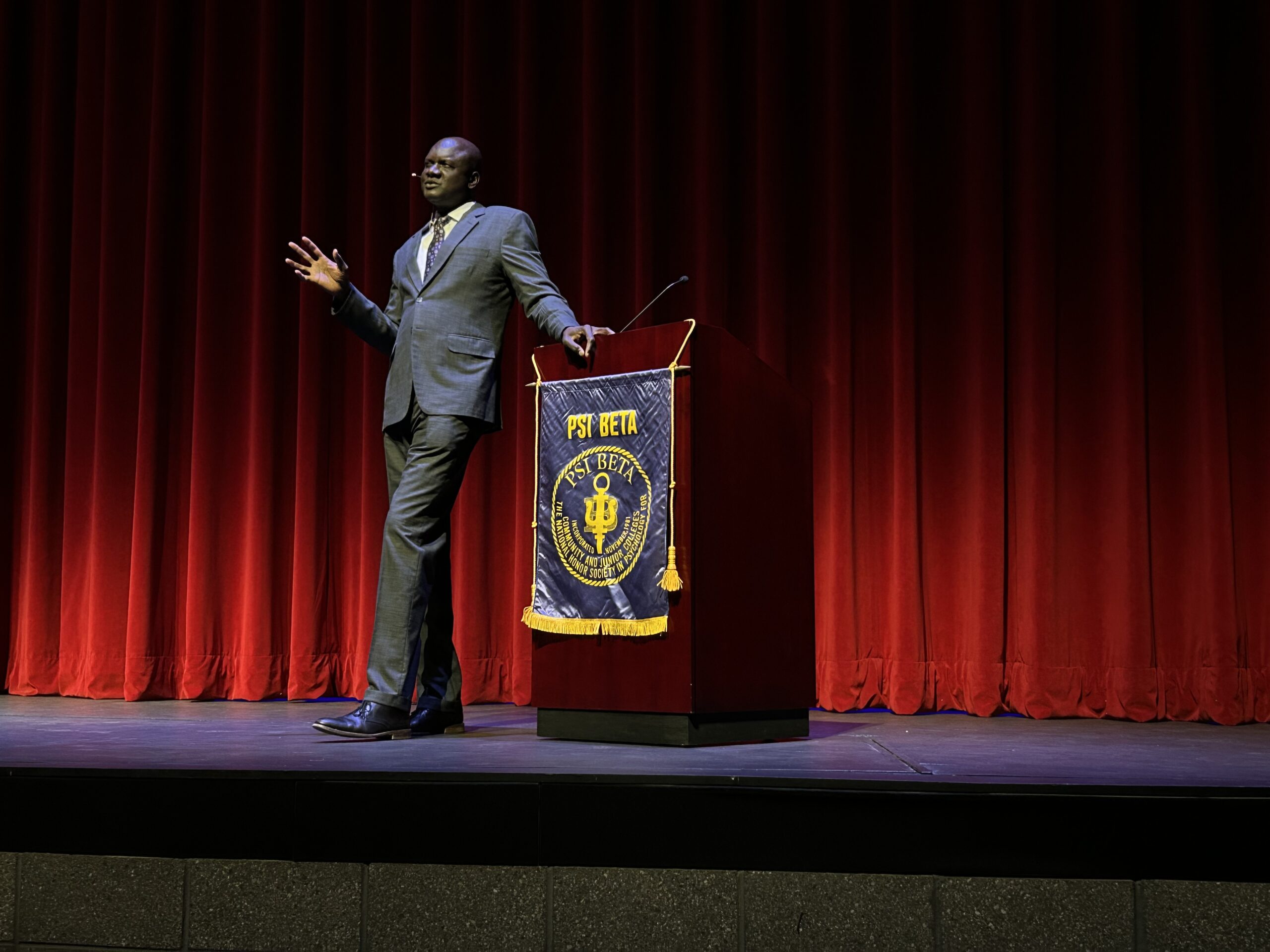Chaos of reality tempered by illusion in how society digests media fantasy
Karlyle Stephens
Mesa Legend
I f nothing else, public intellectual Chris Hedges’ “Empire of Illusion: The End of Literacy and the Triumph of Spectacle” will inspire you to turn on your critical eyes and look around. Direct TV and AT&T come together in a new ad promising to “take entertainment places you’d never imagine.” One shot shows a scene of “Home Alone” playing on someone’s wrist watch. Another has a flat screen showing Derek Jeter celebrating a home run while the game’s commentator shout’s “where fantasy becomes reality.” The NFL regular season just kicked off, and the league is running a fantasy football campaign that insists “Friends don’t small talk. Friends talk fantasy.” Fear of missing out, or “FOMO,” is a new social media phenomenon that identifies a condition many experience from heavy Instagram usage.
f nothing else, public intellectual Chris Hedges’ “Empire of Illusion: The End of Literacy and the Triumph of Spectacle” will inspire you to turn on your critical eyes and look around. Direct TV and AT&T come together in a new ad promising to “take entertainment places you’d never imagine.” One shot shows a scene of “Home Alone” playing on someone’s wrist watch. Another has a flat screen showing Derek Jeter celebrating a home run while the game’s commentator shout’s “where fantasy becomes reality.” The NFL regular season just kicked off, and the league is running a fantasy football campaign that insists “Friends don’t small talk. Friends talk fantasy.” Fear of missing out, or “FOMO,” is a new social media phenomenon that identifies a condition many experience from heavy Instagram usage.
 A New York Times article about the trend calls it a “prime side effect” from following the profiles of celebrities on summer vacations. One young woman interviewed for the article said scrolling through photos of pop stars and super models on yachts “exacerbates the feeling.” She added, “I can’t help but have the delusion that they would enjoy me there.” These are only a few contemporary examples of the “Empire of Illusion.” In Hedges’ book, published in 2009, he studies the language of American pop culture with similar watchfulness so that readers have precise illustrations of life inside the Empire of Illusion and its blatant disregard for reality.
A New York Times article about the trend calls it a “prime side effect” from following the profiles of celebrities on summer vacations. One young woman interviewed for the article said scrolling through photos of pop stars and super models on yachts “exacerbates the feeling.” She added, “I can’t help but have the delusion that they would enjoy me there.” These are only a few contemporary examples of the “Empire of Illusion.” In Hedges’ book, published in 2009, he studies the language of American pop culture with similar watchfulness so that readers have precise illustrations of life inside the Empire of Illusion and its blatant disregard for reality.
Seduced by an endless amount of entertainment, adults increasingly become like children, and are encouraged to live an anti-intellectual existence; one where spectacles, such as football, are the only thing worthy of discussion among a group of friends. Captivated by what is on screen, famous people play pivotal roles in the ways “we escape the chaos of real life through fantasy.” Hedges writes “celebrity culture defines what it means to belong, how we recognize our place in society, and how we conduct our lives.” He’ll also sometimes refer to it as a cult of distraction.
Borrowing powerful excerpts from other authors/critics of the subject, Hedges refers to Daniel Boorstin who noted that the techniques of entertainment and theater “have leached into politics, religion, education, literature, news, commerce, warfare and crime.” In an age where reality TV stars become leading presidential candidates, Hedges Empire of Illusion is still like a compass map for maneuvering about the empire.









